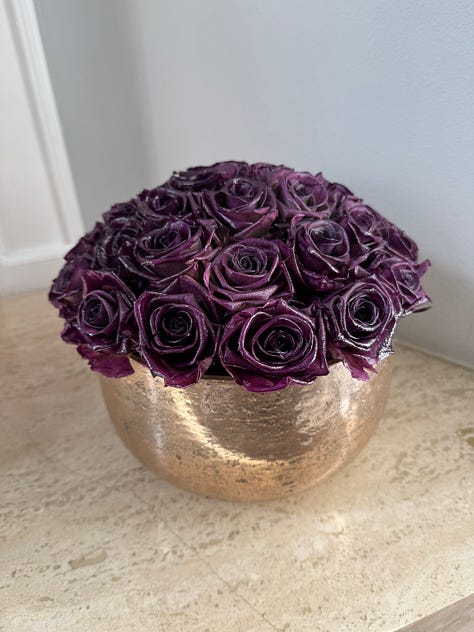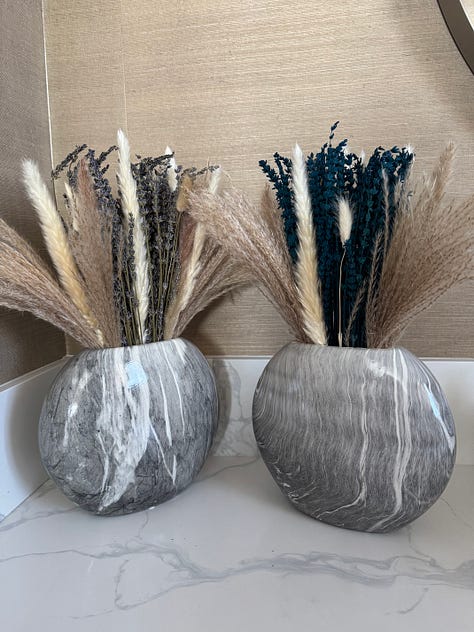Bookish Updates
A GOOD INDIAN GIRL on the screen? Yes, please!
I am trying to keep my expectations and hopes managed, but I am very excited to share that a production studio is interested in a film adaptation of A Good Indian Girl, and while I worked in Hollywood long enough to know there are many hurdles to overcome for that to be a reality, I am excited by the possibility. This is the stage of endless dreaming where all the big Indian names both on and off screen get tossed around and I just hope that one of them will be interested in joining the project. I hope you will join me in sending all the good vibes out there into the universe so that we can all one day see Jyoti, Karishma, and Nalini on the big screen!
Save the Date for SAVING FACE Book Launch on August 10
I am so thrilled to be returning to my local Bookstore, Diesel (where you can preorder signed copies of the book), on Sunday, August 10 at 3pm to have an event celebrating the launch of my fourth novel. And yes, this event is two days before the official launch so you get your copy early if you attend. And the best news is that Lyn Liao Butler has a book coming out in August too, so this is going to be an extra special joint launch event for Saving Face and The Fourth Daughter.


Procrasti-Cleaning has taken over my life
I wish I could tell you that I’m knee-deep in Book 5. I have a killer idea and I think you will love it as much as I do. Thus far, I’ve written a 22-page synopsis, the first 70 pages, and have paused drafting to work through my scene-by-scene outline, but this one has been tricky for me because it is a bit different from my first four novels. It is by far by the most ambitious and provocative, and this is when I wish the story could just be pulled out of my head and onto the page overnight, but that’s not how it works (as much as AI wants to act like that’s all writing is, ahem. But that’s a conversation for another day!). So, as I organize the story in my head, there’s a lot of organizing in my home. (My friend Paulette mentioned the term procrasti-cleaning and there is no better phrase for what I am doing.) That meant going through my closets and book shelves and finding items to donate. It also entailed making my space feel more peaceful and creative, so I took up some DIY home decor to spruce up my place, including repainting some preserved roses and making some dried arrangements. I love looking around my home and knowing that I created these little pockets of joy that I feel each time I see my handiwork. Now, I really have to get back to my outlining/writing and have no excuses about my home not feeling inspiring enough.



The Art of Receiving
Another trip around the sun. My birthday was in April and that is always a period of reflection, as well as a source of angst for me in certain ways. Not because of the aging. I am one of those people who feels more and more comfortable in my own skin as time passes (at least for now). What’s hard for me is that I live in a Western world where the goal of birthdays is to have the attention on me. But I was raised in an Indian household where I was shown a different view of birthdays, and so this day became another example in which I struggled to balance my collectivist and individualist values.
I was taught that, in India, birthdays are a time to celebrate the people you love in your life.
For my parents, a birthday custom would be to host your family and friends for a meal as a celebration and acknowledgment that your life and the past year would not have been the same without those people in it. I love this sentiment so much.
In America, birthdays are a time to celebrate oneself. For what, however, remains unclear. Apparently, for the ability to stay alive for 365 days.
Western birthdays are a time for other people to shower you with gifts and praise and spend the day focused on you. Children love getting presents for any reason, and I was no different as a kid, but as I grew into adulthood, the Western notion began to feel far from who I naturally am. Throughout my twenties, friends would take me to dinner (a nice intention) and then as the birthday girl, I’d sit there awkwardly while they huddled over the check and figured out how to split the bill amongst themselves, with someone inevitably reminding the group that they had to add on the part they were covering of my meal. Every time that happened, I wanted to yank it out of their hands and say that I would just pay for the whole thing, but for many of those years I was a student or saddled with school loans or saving for my family, and I could not afford to do that. And then when it was their birthdays our roles would shift, I would be at the end of the table huddling over the bill with the others reminding people what portion we needed to cover for the birthday recipient. There was a financial balance in this because we were all opting for an individualistic approach to birthdays.
As soon as I got to a place in my thirties in which I could afford to do so, I only did birthday celebrations in which I would be hosting and paying (the way I had seen my parents do) and avoiding that awkward bill-splitting fiasco entirely. After a few years of doing that and realizing that I spent a ton of money on other people on my birthday, and then still spent a ton of money on other people on their birthdays, I began feeling the financial imbalance created by my desire to feel culturally aligned. I realized that having a collectivist mindset in an individualistic world meant that I would never achieve the equilibrium that I strove toward in my relationships.
Knowing I could not reconcile the two, but not wanting to draw attention to my internal angst, I chose a different path for myself.
I began traveling on my birthday. I would go to other continents where people did not know me to avoid the awkward birthday dinner. It gave me a chance to do something I loved (exploring another culture) while avoiding something I dreaded (the awkward birthday dinner). And when it came to group birthday dinners for other people, I avoided those too. Feigning excuses was easy enough and I knew that my presence would not really be missed at these large dinners. It was not a perfect solution, but was one I could live with.
I realized that by my parents having only Indian friends in America, they managed to avoid this annual dilemma. For them, birthdays were the same in America as they would have been in India—the person whose birthday it was hosted people to celebrate. They never had to go through the conundrums that I did as a result of having friends and values from varied backgrounds.
While the birthday scenario is one example, I have long known that I have a larger problem with receiving, in general, whether that is a birthday present, a compliment, or anything else.
It was drilled into me as a child that “we don’t want to take any obligation from others.” It is a phrase I have distinct memories of hearing when I was growing up. While it wasn’t said in the context of birthdays specifically, it was said if I asked to borrow a friend’s clothes, or if someone offered to pay for something that we couldn’t afford, or when someone offered a ride to the airport. The bar for what my parents considered “obligation” was very low. Meaning that if I’d been out with a friend’s family and they bought me a candy bar, my parents were going to make sure they bought that friend a candy bar the next time. As a kid, I couldn’t understand why it mattered if a borrowed a friend’s sweater for a day—in the small towns in the Midwest in which I was raised, swapping clothes was all the rage. But now I know it was because they were worried that if something happened to the borrowed sweater while it was in my care, then they would feel obligated to replace it, and the clothes of my white friends were from fancy stores than where my family shopped. In the same vein, if someone offered a ride to the airport, then they would have felt they must return the favor even if it didn’t work with their schedule so it was better to avoid that situation entirely.
As any good therapist would say, the things that we learned in our childhood shape who we become as adults. And I became an adult who has difficulty receiving.
I became someone who keeps a mental tally to make sure my relationships are balanced. I never want to feel like I’m in deficit to someone else. But I think my reasoning is somewhat different from the obligation message I grew up with. Mine is that I never want someone to feel like they are giving more than I am. At my core, I never want to be someone who takes more than I give. This means that if someone treats me to dinner, then I will remember that and be sure to treat them the next time. It means that if someone offers me a ride to the airport, I will offer them the same when they travel. And if someone gives me a birthday gift, I will make sure I do the same when it is their turn. Is this a grown-up version of the candy bar example? Maybe. I like doing things for others (much more than I like receiving things) and that is my primary motivation, but it’s also clear that the obligation monster also lurks in the shadows.
As I’ve gotten older and met people who have no issue receiving from others, I always find it curious because it is so far from who I am. I know someone who never protests when she’s offered anything from food to money to trips, sometimes with values exceeding thousands of dollars. She is able to just say thank you and feel gratitude with no sense of obligation. Her attitude is to take people at face value and assume that if someone says they want to treat her, then they are saying that out of generosity rather than obligation and she accepts it readily. I get anxious even thinking about receiving in that way. I know if the two of us go out to eat and I offer to pay, she will let me and not offer an ounce of protest. I also know she will not offer to pay for me the next time, the way I would if our roles were reversed. If you’ve ever been to dinner with an Indian, you have likely seen there is a knock-down fight over who gets to pay the bill, and I am definitely cut from that cloth.
Even on dates, I had a hard time letting someone pay for me. It was only after my second boyfriend told me that he thought I wasn’t interested after our first date because I fought so hard to pay the bill, that I began to think about this concept of how I receive. From his perspective, he thought I was fighting so hard because I wanted to make clear that I wasn’t interested. From my perspective, I was fighting because I wanted him to know that I genuinely liked him for him and didn’t want him to think I was using him for free meals. That conversation from so many years ago really impacted me and I come back to it often when thinking about my own behavior and what message it is sending.
One of the most negative things to come from this obligation mentality, is that I have difficulty asking for and receiving help.
Whether it’s being sick and needing supplies, asking for a ride to the airport, or asking people to support my writing, it is hard for me to seek out assistance, and I typically feel bad when I do. If there is a way to do something on my own—no matter how convoluted—I will choose that option. I don’t want to take time, money, or energy from someone else even when I know that person doesn’t see it that way, and even when I know that in the reverse situation, I would be happy to be of service to them.
Not wanting to ask for help is especially problematic as an author because the success of your career often depends on that. Longevity in creative careers are largely dependent on the time, money, and energy of family, friends, and especially strangers. Despite the myriads of marketing gimmicks and plethora of places authors could sink money into (e.g., expensive publicists, buying ads on Amazon and Meta, making preorder gifts to entice people, etc.) time and time again we are told one thing: word of mouth is what sells books. So with each book launch I have to visit my least comfortable place and ask my readers for help with buying the book, requesting it from local libraries, leaving reviews, posting on social media, and suggesting it for their bookclubs. It creates an imbalance that leaves me feeling uncomfortable. The only way I feel I can repay such generosity is with my own time, so I engage with posts I am tagged in, offer to join book clubs in person or virtually, and write this newsletter that many of you have said you really enjoy reading each month (thank you!).
I am trying to be better about not “keeping score” when it comes to my personal and professional relationships and not worrying so much about whether I could end up in a financial or emotional deficit and feel like I am not pulling my weight. There are a select few people in my absolute inner circle with whom I have gotten better about that, but even there, it is hard to let go of the obligation mentality I was raised with. As far as I think I’ve come, one of my dearest friends pointed out to me last year that I still have a long way to go in this regard (and I love her for being the type of friend who loves me enough to shine the light where it is needed).
Receiving is definitely more art than science, and I think people’s comfort levels with it will always vary. I don’t think I could ever be someone who doesn’t offer to pay or reciprocate, nor do I want to be that person. But I also don’t want to be someone who cannot accept generosity from my inner circle without feeling like there is an obligation to “pay it back.” I want the purity that comes from not keeping score when it comes to my closest people. My work will be to land somewhere in the middle of those two extremes and still honor who I am at my core.
I find that it is easier for me to receive praise or accept generosity when I feel as if I have done something to earn it. That is my biggest issues with birthdays. I don’t feel like I’ve done anything to warrant attention on that day. I have an easier time celebrating book releases because I know I’ve worked hard to get to that place, and it feels far more earned. (That said, of course if you preorder Saving Face, I would love to receive that news! And I will likely to try to find some way to repay you because, well, this is who I am).
Bookish People to Know
This month I’m excited to feature Asha, who has both an active booksta account and a personal blog. She features all things books and, unlike me, is always sporting a perfect manicure and you can see her nail art on IG as well as her favorite reads. She reads widely and loves main characters who are in their thirties and forties (yes, to more books about people at those ages). She does a lot to promote South Asian authors and those from other marginalized backgrounds so please give her a follow and support her mission to amplify voices.
Here’s a chance to get to know her better and pick up some of her favorite books.
Asha, tell us a little about yourself, including a fun fact we might not otherwise know from your social media.
I’m a South Asian book influencer who gravitates toward romance, thrillers, and contemporary especially stories with emotional depth and complex characters. A fun fact about me: When I'm not reading or painting my nails, I love to explore local dog friendly trails with my 4.5 year old dog, Sona.
What inspired you to start a bookstagram account?
I was an avid reader back in middle school, but it tapered off in high school. I picked up reading again in 2017 during a stressful season of my life and books quickly became my comfort and escape. Since then, I’ve been lucky to meet incredible friends through Instagram and book events.
What is a book that has stayed with you long after the last page, and what about it is so memorable?
The Secret Daughter by Shilpi Somaya Gowda. This book was so heart-wrenching and resonated with me deeply. It explores identity, adoption, motherhood, and culture in such a thoughtful way that it stayed with me long after I finished the last page.
What is a book that has made you feel the most seen?
Can't Get Enough by Kennedy Ryan. It's such a refreshing take to see a strong heroine in her 40s who is childless by choice find her HEA. Honestly the whole Skyland trilogy is 5 stars!
What is a book you wish more people knew about?
The Second First Chance by Mona Shroff. It’s a beautiful, emotional story about second chances, grief, and love. I wish more people knew about it because it handles heavy themes with so much heart, and the writing makes you feel every bit of the characters’ journey.
What was the last book that made you laugh?
To Have and To Heist by Sara Desai. This book was such a fun ride! The humor, the heist shenanigans, and the sharp banter had me laughing out loud more than once.
What is the last book that made you cry?
What types of books would you like to see more of on the shelves?
I’d love to see more romances with older protagonists who are in their 30s and 40s and more thrillers with diverse leads.
Recent Read + Giveaway
One of the joys of the author journey has been the good friends I have made along the way, and Paulette Kennedy is chosen family. She is one of my early readers, and I am always honored when I get to be hers because she’s such a talented writer that I know that reading her work will make me a better writer. And her latest is Paulette at her absolute best, so I would encourage you to add The Artist of Blackberry Grange (out today and already a bestseller!) to your collection asap.
I loved this book so much because it is a bold, fresh story about the ghosts that haunt us and the ones we overcome. In it, Paulette explores loss and humility through the eyes of a saucy flapper who may bend the rules, but not her sense of morality. The story is full of atmospheric prose, long buried family secrets, intrigue that will keep you on the edge of your seat, and even a little romance for good measure. This book will linger in your heart like the fond memory of a loved one, and I hope you will enjoy this story as much as I did.
GIVEAWAY: Paulette has generously offered a SIGNED copy of her novel to one lucky newsletter subscriber, and you can enter the giveaway here.
Here’s the synopsis:
For a young caregiver in the Ozarks, an old house holds haunting memories in a ghostly novel about family secrets, sacrifice, and lost loves by the author of The Devil and Mrs. Davenport.
In the summer of 1925, the winds of change are particularly chilling for a young woman whose life has suddenly become unbalanced.
Devastated by her mother’s death and a cruel, broken engagement, Sadie Halloran learns that her great-aunt Marguerite, a renowned artist now in the throes of dementia, needs a live-in companion. Grasping at newfound purpose, Sadie leaves her desolate Kansas City boardinghouse for Blackberry Grange, Marguerite’s once-grand mansion sitting precariously atop an Arkansas bluff. Though Marguerite is a fading shell of the vibrant woman Sadie remembers, Marguerite is feverishly compelled to paint eerie, hallucinatory portraits of old lovers—some cherished, some regretted, and some beastly. All of them haunting.
With each passing night, time itself seems to shift with the shadows at Blackberry Grange. As truth and delusion begin to blur, Sadie must uncover the secrets that hold Marguerite captive to her past before reality—and Marguerite’s life—slips away entirely.
Thank you all for being here and joining me on this journey.
xo,
mansi




